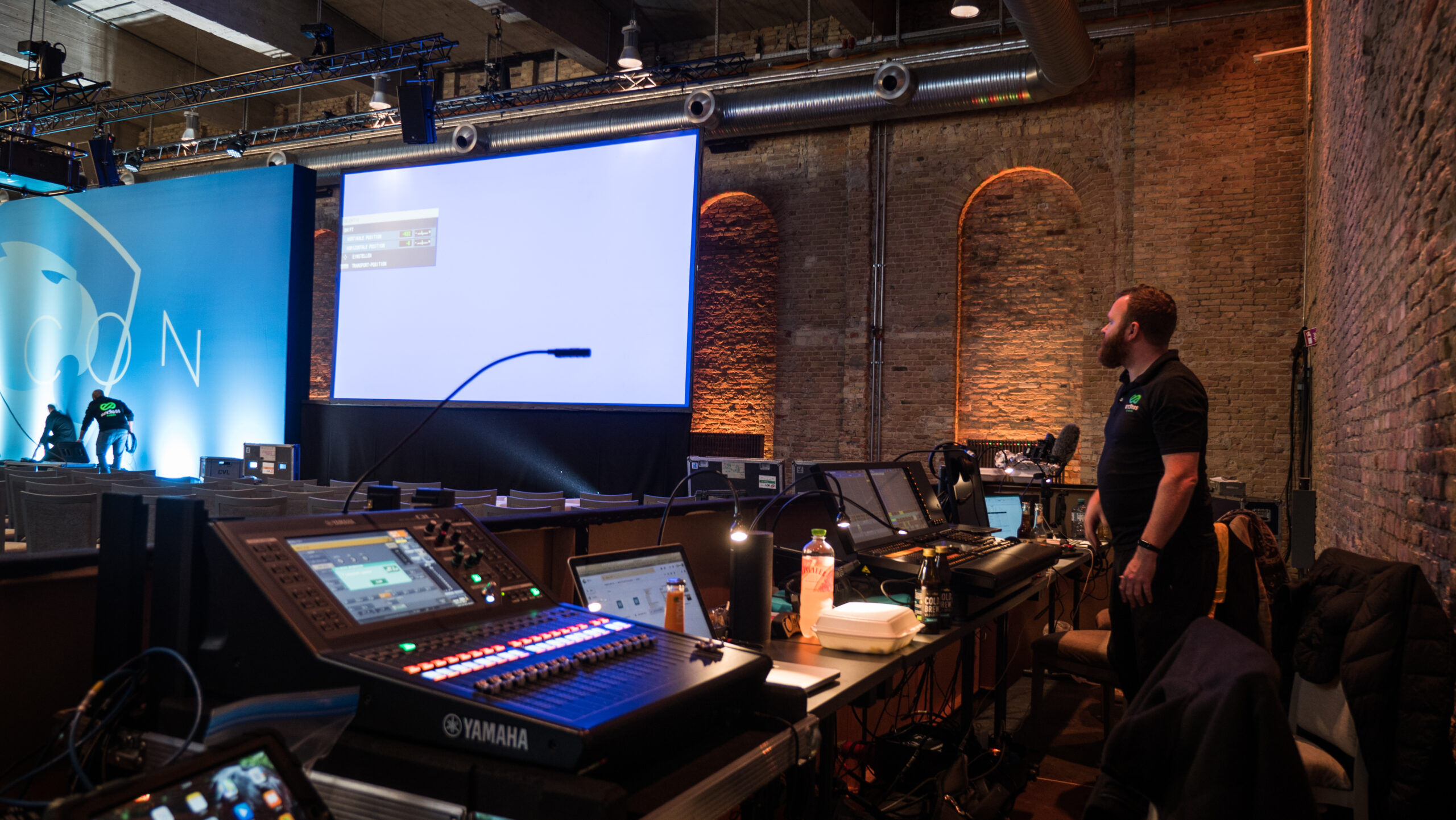Behind the Scenes: The Magic of Effective Event Productions
Behind the Scenes: The Magic of Effective Event Productions
Blog Article
Understanding Just How Events Manufacturing Works: A Comprehensive Review of the Refine
The details of event production demand a systematic technique that incorporates several phases, each playing an essential duty in the total success of an occasion. Recognizing the nuances of budgeting, source allocation, and on-site management is essential for any professional in this field.
Preliminary Planning and Concept Development
Effective initial planning and idea advancement serve as the foundation for successful events production. This phase entails specifying the event's function, target audience, and desired end results. A clear vision is crucial; it overviews all succeeding decisions and assists line up the team's efforts towards an usual objective.
During this phase, brainstorming sessions can be important. Engaging stakeholders, including customers, enrollers, and prospective guests, fosters a collaborative environment that creates cutting-edge concepts. In addition, detailed market research study must be conducted to recognize patterns, choices, and prospective challenges.
As soon as the idea is developed, it is vital to create a detailed occasion overview. This synopsis must consist of the event's motif, style, and key tasks. Establishing a timeline is similarly important, as it assists to manage deadlines and jobs effectively.
Budgeting and Resource Appropriation
With a solid principle in position, focus should transform to budgeting and source allotment, which are essential elements in implementing the event effectively. A distinct budget plan functions as a roadmap, detailing all anticipated prices and available sources. It begins with determining repaired and variable costs, including place rental, wedding catering, technology, staffing, and advertising. Each category ought to be thoroughly computed to avoid overspending and to guarantee that funds are designated properly.
Resource allotment includes designating both human and monetary sources to different tasks and components of the event. Prioritization is essential; vital aspects must get appropriate financing while much less important elements may require a more traditional strategy. Backup planning is crucial-- assigning a section of the spending plan for unexpected expenditures can reduce economic risks.
On top of that, efficient communication amongst team participants pertaining to budget plan constraints promotes collaboration and technology. This promotes the liable use of sources and motivates creative options to stay within budget plan. Ultimately, a calculated approach to budgeting and source allocation lays the foundation for a successful occasion, making it possible for coordinators to concentrate on delivering a remarkable experience for attendees while keeping financial honesty.
Logistics and Coordination
Browsing the intricacies of logistics and sychronisation is essential for the smooth implementation of any type of occasion. This phase entails meticulous planning and company to ensure that all elements function in harmony. Trick aspects consist of venue option, transportation setups, and the scheduling of numerous activities.
Efficient logistics starts with a detailed analysis of the location's constraints and abilities. This includes comprehending the design, access factors, and available sources. When the venue is confirmed, transport logistics have to be established, encompassing the motion of guests, tools, and products. Working with these elements requires collaboration with vendors, providers, and transport solutions to make sure prompt distributions and pick-ups.
One more essential facet is the growth of a comprehensive timeline that outlines all logistical elements leading up to the event. This timeline acts as a roadmap, detailing essential milestones and due dates for tasks such as devices configuration, catering services, and audiovisual installations. Normal interaction with all stakeholders is essential to attend to any type of prospective issues proactively.
Execution and On-Site Monitoring
Successful implementation and on-site management are essential for transforming thorough plans right into reality throughout an occasion. Their ability to make real-time choices can significantly influence the event's success.
A distinct schedule is vital, acting as a roadmap for all activities. Occasion supervisors should make certain that setup go happens on time, adhering to timelines for audio checks, providing deliveries, and guest arrivals. Efficient analytic skills are also crucial; unanticipated challenges can develop, calling my link for quick thinking and versatility to keep the event's flow.
Furthermore, focus to guest experience is extremely important. Checking visitor interactions, making certain safety procedures are adhered to, and providing support personnel to attend to worries fosters a positive environment. This level of interaction not just enhances the general experience yet additionally reflects the expertise of the event team. Event Productions. Eventually, effective execution and on-site management depend upon in-depth prep work, reliable interaction, and a commitment to providing an exceptional event for all involved.

Post-Event Examination and Responses
The conclusion of any kind of event lies not just in its implementation however likewise in the thorough examination that adheres to. Post-event assessment is necessary for determining the general success of the occasion and recognizing locations for improvement. This process normally involves gathering responses from various stakeholders, consisting of guests, suppliers, and staff member, to acquire a comprehensive perspective on their experiences.
To structure the examination, occasion coordinators usually make use of meetings and studies, concentrating on key efficiency indications such as participant satisfaction, logistical efficiency, and budget adherence. Evaluating this data allows planners to assess whether the event fulfilled its objectives and to recognize the toughness and weak points of the implementation.
By methodically attending to feedback and applying modifications, event specialists can improve their approaches, inevitably leading to more impactful and successful events. In final thought, post-event assessment is a vital action in the event manufacturing procedure that makes sure continuous development and excellence in future undertakings (Event Productions).
Final Thought

The ins and outs of occasion production need a methodical method that integrates numerous stages, each playing a critical duty in the overall success of an occasion.With a solid principle in area, focus has to turn to budgeting and resource allocation, which are vital components in carrying out the event efficiently.Resource allotment entails appointing both financial and human sources to numerous tasks and components of the event. Eventually, a calculated strategy to budgeting and source allocation lays the groundwork for a successful event, allowing coordinators to concentrate on supplying a remarkable experience for participants while keeping economic honesty.

Report this page